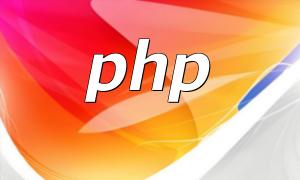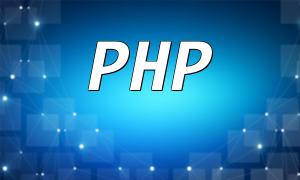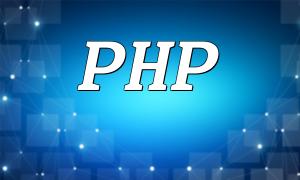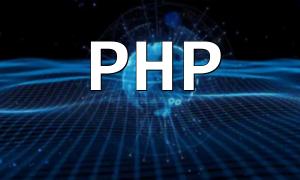In today's internet age, website performance and loading speed are critical for enhancing user experience and improving search engine rankings. This article will introduce how to use PHP to optimize website performance and speed, covering caching technology, code optimization, database query optimization, and more.
Caching is a key technology for improving website performance. By implementing caching mechanisms, you can significantly reduce the number of database and file system accesses, thereby speeding up page response times. PHP provides multiple caching solutions, such as memory caching (Memcached, Redis) and file caching (APC, OpCache). Below is a code example demonstrating how to use PHP's APC caching feature:
<?php
// Set cached data
$data = 'Cached data';
$key = 'cache_key';
$ttl = 3600; // Cache expiration time in seconds
apc_store($key, $data, $ttl);
// Retrieve cached data
$data = apc_fetch($key);
if ($data !== false) {
// Cache exists
echo $data;
} else {
// Cache expired or does not exist
// Retrieve new data and cache it
$data = 'New data';
apc_store($key, $data, $ttl);
echo $data;
}
?>
Writing efficient PHP code can greatly improve website performance. Here are some common optimization tips:
Frequent database queries can slow down website performance. By combining queries, using more efficient SQL statements, and implementing caching, you can reduce database load. Below is an example of how to optimize database queries using caching:
<?php
// Get the list of IDs to query
$ids = [1, 2, 3, 4, 5];
// Retrieve cached data
$cachedData = apc_fetch('cached_data');
if ($cachedData === false) {
// If data is not in cache, query the database
$query = "SELECT * FROM table_name WHERE id IN (" . implode(', ', $ids) . ")";
$result = mysqli_query($connection, $query);
$data = [];
while ($row = mysqli_fetch_assoc($result)) {
$data[] = $row;
}
// Store query result in cache
apc_store('cached_data', $data);
} else {
// Use cached data
$data = $cachedData;
}
// Process data...
?>
Using PHP's built-in array functions (like array_map() and array_reduce()) is typically more efficient than traditional for loops. Here's an example of how to use these functions for efficient array manipulation:
<?php
// Process each element in the array
$array = [1, 2, 3, 4, 5];
$processedArray = array_map(function($item) {
return $item * 2;
}, $array);
print_r($processedArray);
// Calculate the sum of all elements in the array
$sum = array_reduce($array, function($carry, $item) {
return $carry + $item;
});
echo $sum;
?>
HTTP caching allows static resources (like images, stylesheets, and JavaScript files) to be stored on the client-side, reducing server requests and speeding up page loads. PHP's header() function can be used to set the caching strategy for pages:
<?php
// Set HTTP cache headers in PHP
header('Cache-Control: public, max-age=3600'); // Cache duration: 1 hour
header('Expires: ' . gmdate('D, d M Y H:i:s', time() + 3600) . ' GMT');
// Output page content
echo 'Page content';
?>
By utilizing PHP-based caching techniques, code optimization, and database query enhancements, developers can significantly improve website loading speed and performance. Faster page load times will enhance user experience, improve website usability, and positively impact search engine rankings.









